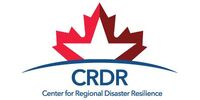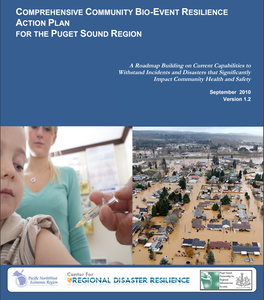The Action Plan identifies needs and recommends more than six dozen activities to meet these needs in 12 focus areas. It provides a template in matrix format that stakeholders can use to prioritize these recommendations and determine lead and partner organizations for each activity. This matrix offers a tool for stakeholders to use to take the next step to create work groups to identify project requirements and sources of potential funds and expertise for implementation. Lastly, the Action Plan includes guidance on how stakeholders can create a sustainable, continuous improvement process through incorporating into the Plan new bio-resilience needs and activities based on lessons learned from events and exercises. This continuous improvement process will provide a means to measure progress as Action Plan activities are completed.
This document describes a holistic, systematic approach for determining needed actions to improve regional capabilities to withstand bio-events that significantly impact community health and safety, and to rapidly recover to normal or new normal conditions. The geographic focus of the Comprehensive Community Bio-Event Resilience Action Plan is the Puget Sound Region of Washington State, which includes the Greater Seattle Area, the Pacific Northwest’s largest metropolitan area. The Action Plan is the culmination of a federally-sponsored pilot project led by the Center for Regional Disaster Resilience of the Pacific NorthWest Economic Region (PNWER), a bi-national statutory non-profit organization comprised of Washington, Oregon, Alaska, Idaho, Montana, British Columbia, Alberta, Saskatchewan, Yukon, and the Northwest Territories. The Action Plan provides a template that can be readily customized for use by states and localities with key stakeholders to gauge the current level of preparedness to deal with anticipated and unexpected incidents and disasters. This Action Plan was developed by a broad stakeholder group of public health, emergency management, and other government officials, and utility, business, and non-profit representatives. The approach used was a multi-step process developed by the PNWER Center for Regional Disaster Resilience that has been employed in other parts of the nation and Canada to bring cross-sector and multi-jurisdiction representatives together with experts from diverse disciplines to examine vulnerabilities, consequences, and preparedness gaps for all-hazards incidents and disasters. This facilitated process enables stakeholders to work with government partners to develop and conduct a series of educational workshops, a tabletop exercise and a baseline needs assessment to collectively determine areas of improvement and cost-effective solution options. While the Action Plan is focused on bio-events, the same template can be adapted for any hazard to identify, prioritize, and develop requirements for activities that can provide a dynamic, flexible, and ongoing path forward to enhance community resilience.
0 Comments
Your comment will be posted after it is approved.
Leave a Reply. |
Categories
All
Archives
October 2021
|


